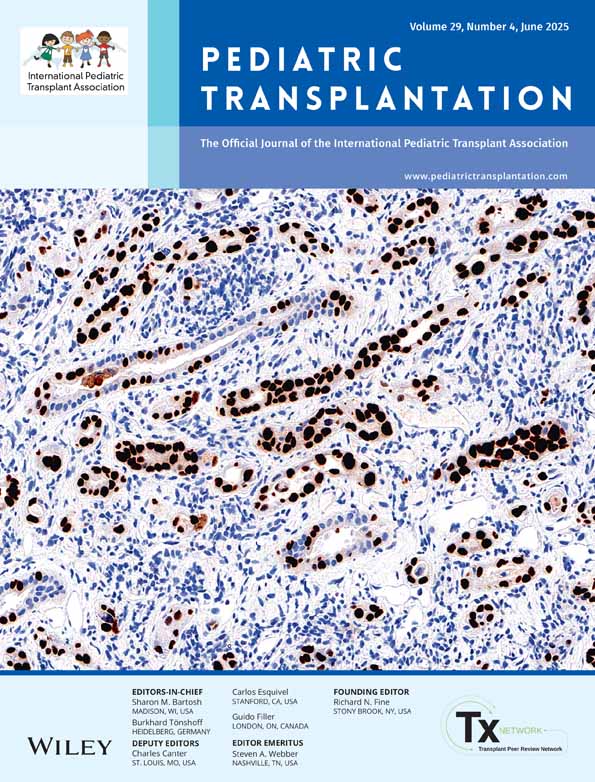Child Organ Offer Process (cOOPS): Understanding Infectious Risk Assessment and Mitigation Strategies
[Correction added on 16 May, 2025, after First Online publication: Name of first author is corrected from “Trinty Lee” to “Trinity Lee” in this version.]
ABSTRACT
Introduction
Pediatric Infectious Disease (PID) clinicians involved in solid organ transplantation often assess infection risk and mitigation strategies for donor organ offers. While some guidance is available, real-life practice patterns have not been previously described.
Methods
We surveyed PID clinicians about organ acceptance and associated posttransplantation interventions using 12 fictitious pediatric case scenarios through 3 PID-specific listservs. Descriptive statistics were employed.
Results
48 (71.6%) of 67 ID respondents were involved in organ offer assessment. Agreement was strong (> 80%) to accept (syphilis, severe acute respiratory syndrome coronavirus 2 [SARS-CoV-2], MRSA, E. coli, TB [liver], rhino/enterovirus) or decline (undifferentiated encephalitis, TB [lung]) organs from these cases, while there was less agreement for cases with risk of coccidioidomycosis, Chagas disease, multi-drug-resistant Acinetobacter baumannii, and influenza. Less agreement was present for posttransplant monitoring and antimicrobial administration. Practice varied in testing and treatment for donors with SARS-CoV-2 positive test, MRSA bacteremia, and Chagas disease.
Conclusions
For many pediatric organ offer scenarios, agreement in donor acceptance was high; however, improved education based on currently available recommendations may enhance organ acceptance decision-making. The variability in management highlights educational and research opportunities to optimize strategies to limit the impact of donor-derived infections in pediatric organ recipients.
Conflicts of Interest
L.D.-I. received grants from the National Institutes of Health, Aicuris, Ansun Biopharma, Astellas, Merck, Pfizer, Takeda, and Viracor. Additional consulting fees were received from Astellas, Takeda, and Roche Diagnostics. M.G. receives consultant fees from Bristol Myers Squibb and ITB-MED, and payment for participation on an advisory board for ADMA. K.P.-B. reports payment for participation on an advisory board for Pfizer (paid to the institution) and MSD (paid to the institution). M.G.M. reports non-financial grant support from Viracor and institutional grant support from Merck Sharpe & Dohme.
Open Research
Data Availability Statement
The data that support the findings of this study are available from the corresponding author upon reasonable request.




